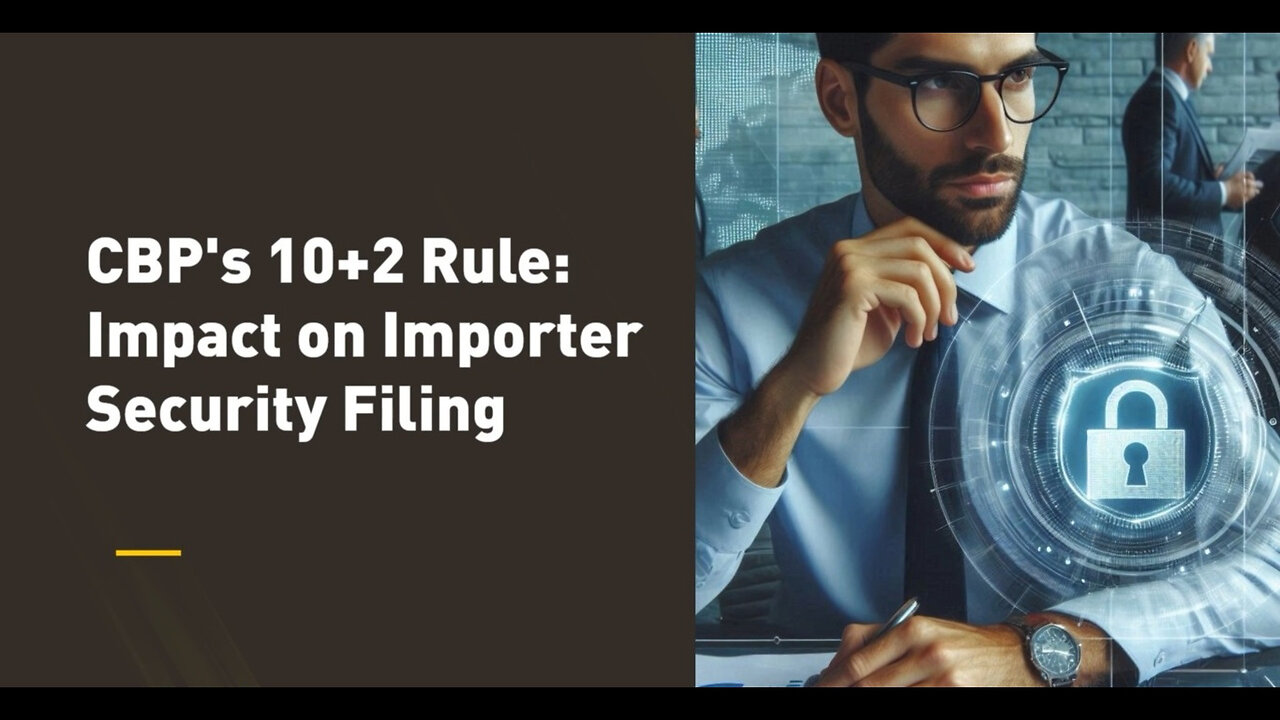Premium Only Content

Demystifying the CBP's 10 2 Rule: Ensuring Import Security and Compliance
ISF Checklist || 805-970-7918 || [email protected] || www.isfchecklist.com
The CBP's 10+2 rule, also known as the Importer Security Filing (ISF), is a regulation implemented by the Customs and Border Protection agency to enhance the security of the US supply chain. It requires importers or their authorized agents to provide additional information, beyond the standard documentation, at least 24 hours before goods are loaded onto a vessel bound for the US. This information helps the CBP assess and mitigate any potential security risks associated with the imported goods. The 10 refers to ten data elements that must be provided, including information about the manufacturer or supplier, seller, buyer, container stuffing location, consolidator, importer of record, consignee, country of origin, commodity HTSUS number, and ship-to party. The +2 refers to the carrier's responsibility to submit the vessel stow plan and container status messages to the CBP. As a customs broker, it is your responsibility to ensure the accurate filing of the ISF information for your clients. Non-compliance can result in penalties, fines, and shipment holds. By providing the required information through the ISF filing, the CBP can conduct effective risk assessments and protect the US supply chain. It is important to stay informed about the CBP's requirements and any updates or changes to avoid compliance issues.
#usimportbond
#isfcustomsbroker
#uscustomsclearing
#isfentry
Video Disclaimer Here: This video is purely educational and has no ties with the US government.
00:51 - CBP's 10+2 rule
02:07 - Customs brokers
02:31 - Non-compliance
-
 25:43
25:43
Russell Brand
1 day agoThis Is Getting Out Of Hand
126K117 -
 LIVE
LIVE
The Quartering
13 hours agoThanksgiving Day Yule Log!
1,779 watching -
 15:32
15:32
IsaacButterfield
21 hours ago $2.29 earnedAussie Reacts To UNHINGED Woke TikToks!
20.5K10 -
 3:24:28
3:24:28
PandaSub2000
14 hours agoNintendo Platformers - Thanksgiving 2025 Special | ULTRA BEST AT GAMES (Original Live Version)
35.4K8 -
 1:03:06
1:03:06
MetatronGaming
1 day agoThis is the scariest game ever (for an Italian)
28.9K10 -
 1:09:35
1:09:35
The White House
8 hours agoPresident Trump Participates in a Call with Service Members
46.5K83 -
 5:20:01
5:20:01
a12cat34dog
7 hours agoHAPPY THANKSGIVING - I APPRECIATE YOU ALL SO MUCH {18+}
22.9K4 -
 24:55
24:55
Jasmin Laine
1 day agoCarney BRAGS About ‘Investment’—Poilievre Drops a FACT That Stops the Room
30.4K28 -
 2:14:15
2:14:15
SIM_N_SHIFT GAMING
6 hours ago $1.31 earnedGRAND THEFT AUTO WITH FRIENDS
16.6K -
 6:43:27
6:43:27
VikingNilsen
16 hours ago🔴LIVE - VIKINGNILSEN - THE NEW PRELUDE - SOULFRAME
14.9K